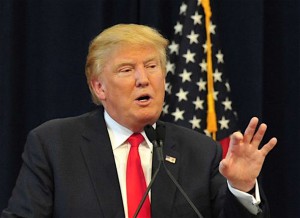
NADA's Peter Welch claims the new emissions standards put in place by the Obama administration will cause vehicle prices to rise.
National Auto Dealers Association is asking the incoming administration of President-elect Donald Trump to void the Obama Administration’s move to approve the rules requiring automakers to cut greenhouse gases for model years 2022-2025.
Hours after the administration issued its ruling, NADA President Peter Welch issued a statement, charging that the Obama administration had just made new cars and trucks more expensive to working men and women.
“Expensive and unaffordable new cars will drive Americans into less efficient, less clean and less safe used cars – undermining the very goals of this policy,” Welch said.
“We urge the incoming Trump Administration to withdraw today’s action, and we look forward to working with the new Administration to ensure that working families can choose the cleaner, safer new cars and trucks they need at prices they can afford.”
Environmental groups have long argued that the fuel-economy rules have helped American motorists across the economic spectrum by making cars less expensive to operate as the price of fuel increased.
(US, Euro investigators casting wider net on diesel emissions cheating. For more, Click Here.)
Welch sounded the same alarm during a speech to the Automotive News World Congress in Detroit when he said that with the average transaction price of new cars steadily rising, the size of the market for new vehicles is shrinking. The rising prices are in large part due to rising cost of meeting fuel-economy and emission regulations.
The next four years a “unique opportunity” to ensure that personal transportation remains affordable for millions of Americans, Welch said in Detroit.
“Over the past 20 years, the single biggest driver of vehicle price increases has been excessive government regulations and mandates,” Welch said. He warned that further unchecked regulatory costs could lead to a period of “demand destruction” where millions of Americans lose out on the technological, safety and fuel efficiency benefits that come with new vehicles.
(VW agrees to $4.3 billion criminal settlement in diesel scandal. For more, Click Here.)
“Unless we as an industry, working with policy makers at all levels of government, start looking through the lens of customer affordability, we risk imposing a new luxury tax on the vehicles our members sell which, in turn, will depress the SAAR, reduce fleet turnover, and deprive large swaths of Americans of the opportunity to obtain and benefit from the ownership of a new car or truck – that’s what I mean by ‘demand destruction,’” Welch continued. “That’s a road that we as an industry and as a nation cannot afford to take.”
Welch’s charge to the entire industry was to avoid any temptation to “rest on our laurels” during the next four years.
“I understand the reluctance in some quarters not to be seen as too eager to push the regulatory pendulum back in the other direction just because a Republican is soon to be in the White House,” Welch said.
(To see more about Fiat Chrysler being accused of rigging diesel tests, Click Here.)
“But if demand is sapped four years from now because new vehicle price points are no longer attainable to otherwise willing buyers, we’re going have much bigger problems on our hands than political optics.”


This arguments are really nonsens. The tech to fulfil CAFE 2025 standards are ready for production well before 2025 and at a lower cost.
http://www.motortrend.com/news/at-least-one-automaker-plans-to-produce-an-opposed-piston-engine/